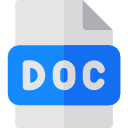Pola Komunikasi Interaktif antara Pemerintah Daerah dengan Masyarakat berbasis Teknologi Informasi dalam rangka askselerasi Otonomi Daerah
Abstract
Keywords
Full Text:
PDF (Bahasa Indonesia)References
Admassie, Assefa; ICTS For Effective Decentralization: A Pilot Study in Selected Woredas (Districts) in Ethiopia; United Nations Economic and Social Council Original: English Economic Commision For Africa Third Meeting of the Committee on Development Information (CODI) Addis Ababa, Ethiopia 10 – 17 May 2003.
Bekele, Dawit; Solomon Atnafu and Dessalegn Mequanint; 2005, ICT for Local Governance: Needs Analysis and Research Priorities for Addis Ababa City Government A Research Report Submitted for LOG-IN Africa Pre-Project Workshop.
Clarke, Rogers, 1994, Information Technology: Weapon of Authoritarian or Tool of Democracy.
Clark Rebecca A., 2003, Female Literacy Rates, Information Technology and Democracy.
Cudanov, Mladen; Jasko, Ondrej; and Jevtic, milos; 2009, Influence of Information and Communication Technologies on Decentralization of Organisational, ComSIS, Vol. 6, no. 1, June 2009.
GAOS Advisory Council for Information Management and Technology, 2009, Excecutive guide: Improving mission performance through strategic information management and technology, lelarning from leading organization, GAO Document number AIMD 94-115.
Kaurahalme, Olli-Pekka, 2011, From E’Government to Public Information Management in Local Government; European Group of Public Administration Annual Conference, study group 1: E’Government; Bucharest, 7th – 10th of September 2011.
Grant H. (1998),” Access Denied: Information Policy and the Limits of Liberalism”. In: Stichler, Richard N, Hauptman, Robert (eds.) (1998): Ethics, Information and Technology: Readings. Jefferson, North Carolina: MacFarland & Company 207 - 230.
Kingham, Tess, 2003, E-Parliaments: The use of information and communication technologies to improve parliamentary processes, The International bank for Reconstruction, The world bank.
Laudon, Kenneth C, Laudon, Jane P. 1999, Essentials of Management GAO’s.
Kester, Information Systems. 4th edition London et al.: Prentice Hall Liden, Gunnar and Avdic, Anders; 2003; Democracy Function of Information technology; Proceeding of the 36th Hawaii International Conference on System Sciences.
Mintzberg, H. 1983, Structure in Fives: Designing Effective Organisation; Englewood Cliffs, Prentice Hall.
Panganiban, Rik, 2004, E-democracy and the United Nations: Using Information Communications Technologies to Increase Access to Information and Participation within the UN System, Center for United Nations Reform Education.
Richardson, Hellen, 2003, The role of Information System and Technology in Case management: A case study in health and welfare insurance; AJIS, vol 10-2, pp 70-80.
Richardson, Henry S., “Institutionally Divided Moral Responsibility”. In: Paul, Ellen Frankel / Miller, Fred D. / Paul, Jeffrey (eds.),1999, Responsibility. Cambridge et al.: Cambridge University Press 218 -249 Robert Lee, Konsbruck, “Impact of Information Technology on Society in the New Century” In: proceeding of the 2006 ASCUE Conference; June 11 – 15, 2006, Myrthe Beach, South Carolina.
Stahl, Bernd Carsten, 2009, Democracy, Responsibility, and Information technology; Proceeding of the European Conference on E-Government.
Tessiore, Luigi, 2008, Issues related to limitation in human resources capacity in implementing decentralization policies in West African countries; A paper presented in “Ministrial Conference on Leadership Capacity Development for Decentralized Governance and Poverty Reduction, Yaounde, 28 – 30 May, 2008.
Vokopola, Zana, 2004, Research paper on: Technology and information
flow in Albania, a tool to increase citizen participation, Albania: Urban research Institute.
Wyner; George M.; and Malone, Thomas W. 1996, Cowboy or Commander: Does Information Technology lead to Decentralisation?; In. JI DeGross, S. Jarvenpaa; and A Srinivasan (Eds); International Conference on Information Systems, 1996, pp 63 – 79.
Yang, Guobin, 2004, Information Technology and Grassroots Democracy: Paper presented in the FourthAnnual Kent State University Symposium on Democracy; Hongkong.
DOI: https://doi.org/10.31315/jik.v13i3.1463
Refbacks
- There are currently no refbacks.
Copyright (c)
Jurnal Ilmu Komunikasi indexed by:
Copyright of Jurnal Ilmu Komunikasi ISSN 1693-3028 (print), ISSN 2407-8220 (online)
Alamat:
Kampus II UPN "Veteran" Yogyakarta, Jl. Babarsari 2, Tambakbayan, Yogyakarta 55281
Phone: (0274)485268
Fax: (0274)487147
Email: [email protected]










